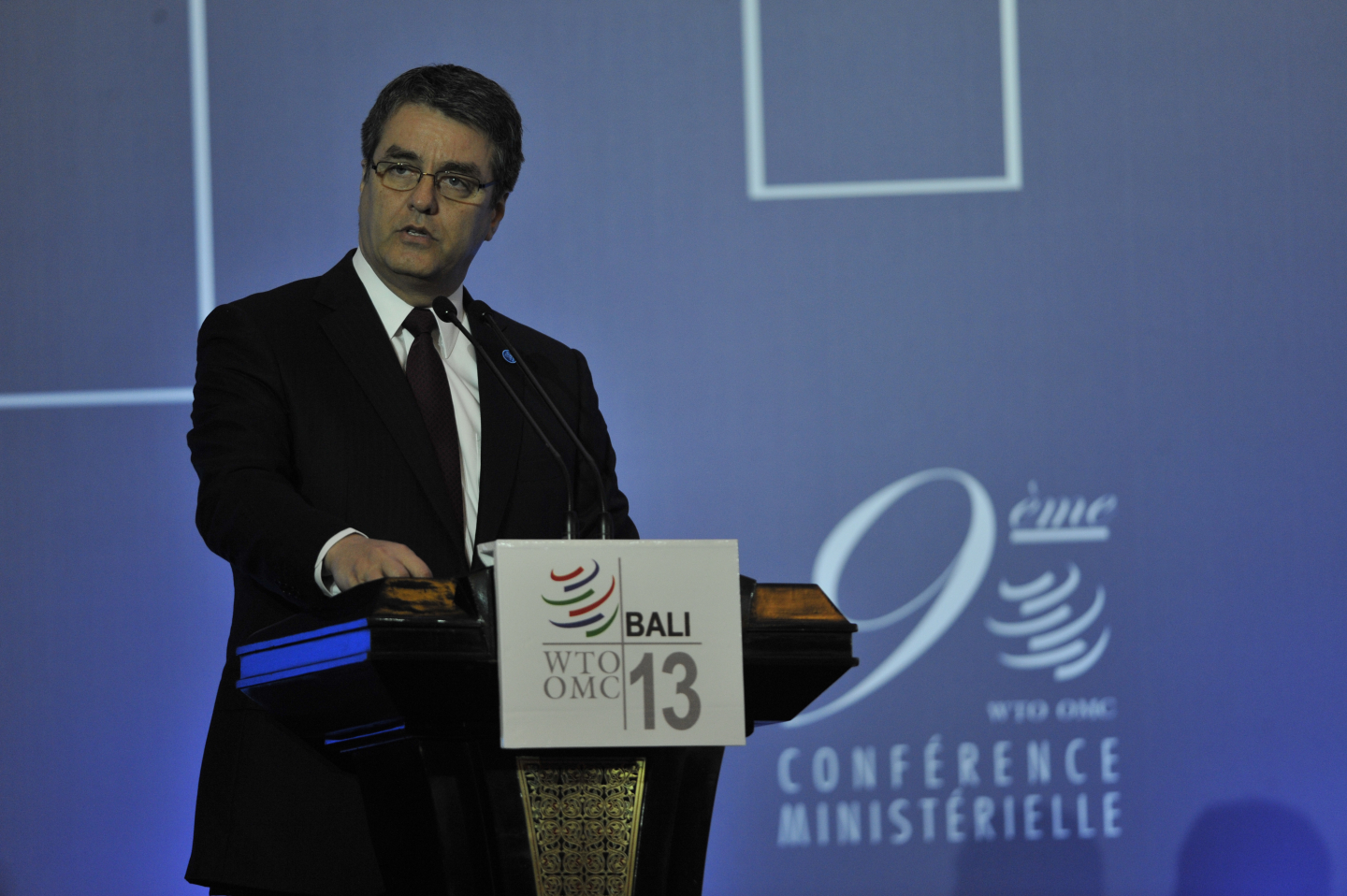Bali 4th December 2013. Hunger has become the main focus for the first time in a WTO Ministerial. Virtually when India pass a new law on the people’s right to food and food security as well as to provide food to its millions of poor in a subsidized price. India is going to have huge public stock of food grain in this regard. But it has drawn a big frown on the brow of the developed countries, especially USA. American food exporter groups and food trade lobby strongly urge their government to sue India in WTO and to stop this subsidy. Because they consider this will distort their food business and India is blamed for crossing WTO limit in respect of Green Box subsidy, which is only 10% of the total agricultural output.
There are other developing countries already in line with India as it is a matter of food security of millions of hungry people of their countries. Not only that, it is also related to the pledge of MDG and Post 2015 agenda to reduce huger in the world. A group of civil society have been urging for long time to keep agriculture out of WTO deals as the food should be considered as the basic human rights, not a commodity. Now, because of India, all the developing countries are taking position on the issue. Already 33 developing countries have taken position in favor of India to revisit the WTO Agreement on Agriculture to include the food security issue.
Observing this contentious issue, WTO Director General Roberto Azevodo proposed a Peace Clause, which is not to challenge this issue at least for the next four years but to find a permanent solution by this time or later. Civil society groups suspect there is no chance of a permanent solution but there is every chance to avoid food security agenda permanently. There is a growing pressure internationally, especially from developed countries, to accept the peace clause, otherwise there will be trade embargo on India which will jeopardize their investment and trade over the globe. US is the one who is leading these developed countries.
But on the other hand, there are huge internal pressure on Indian government from political parties and civil societies, who are almost unified, not to surrender to the peace clause. They demand revision of WTO Agreement on Agriculture to include food security issues or consideration of right to food as a human right. There are strong argument in this regard, a developed countries has given such price support and subsidy in public procurement and distribution system during Uruguay Round discussion, and still they are providing increasing amount of subsidy in different level, especially on food export and thereby dumping the over and surplus productions in developing countries. But in case of developing countries it is the issue of survival of the majority of their population who are poor. While all the developing countries supporting this Indian position, only Pakistan opposing this lining with US and developed country block. Officially Pakistan says that they are afraid of Indian export to Pakistan to be hampered. But it is the Basmati rice from India being exported to Pakistan. In fact, India does not buy that rice for public distribution.
Some of the skeptics say that finally for the interest of Indian trade moguls, India might be agreed to Peace Clause by surrendering to the screw of US and developed countries. But civil society consider that if it is the case, then it will be the death of the food security for the millions of hungry people of the world, at least this time.
Reported by Rezaul Karim Chowdhury, Bali Mobile +62822366635878
